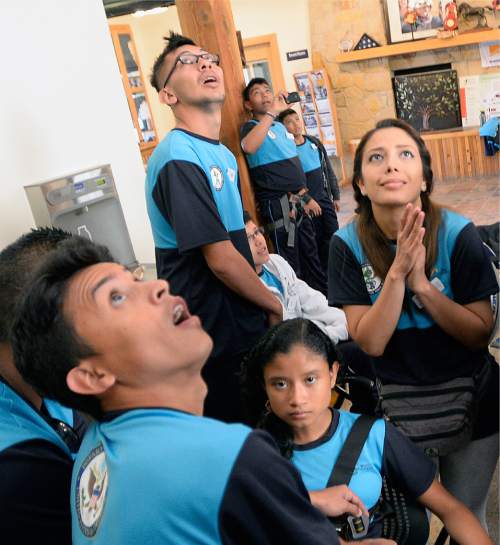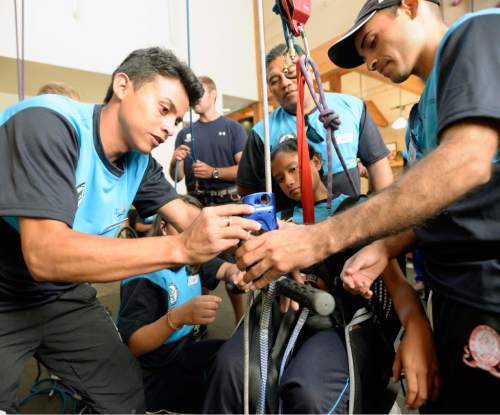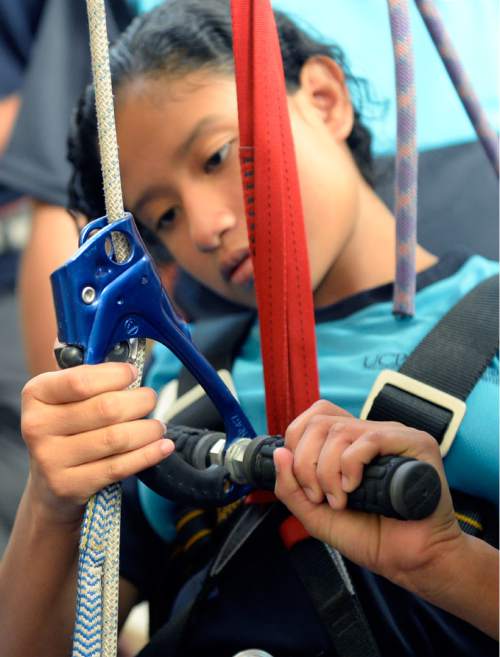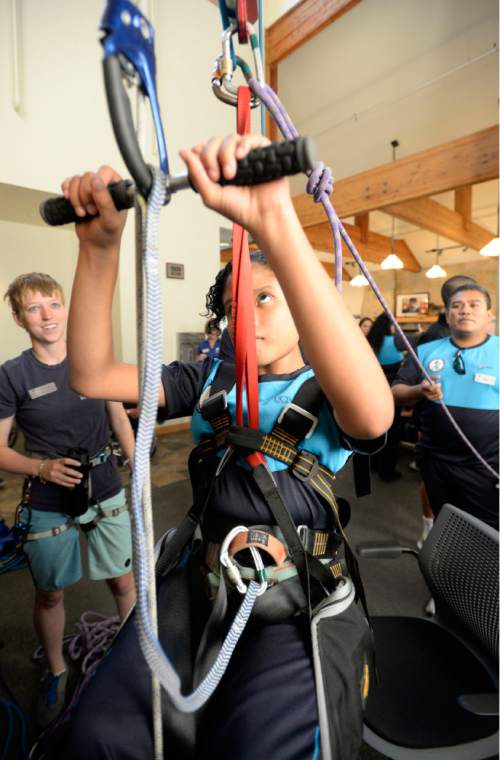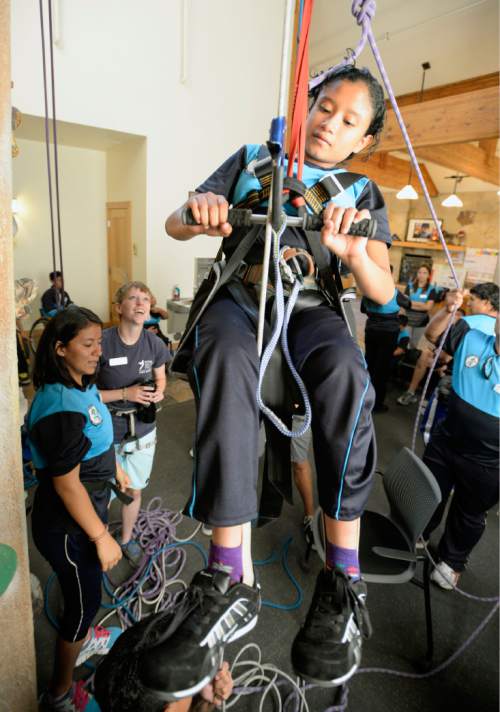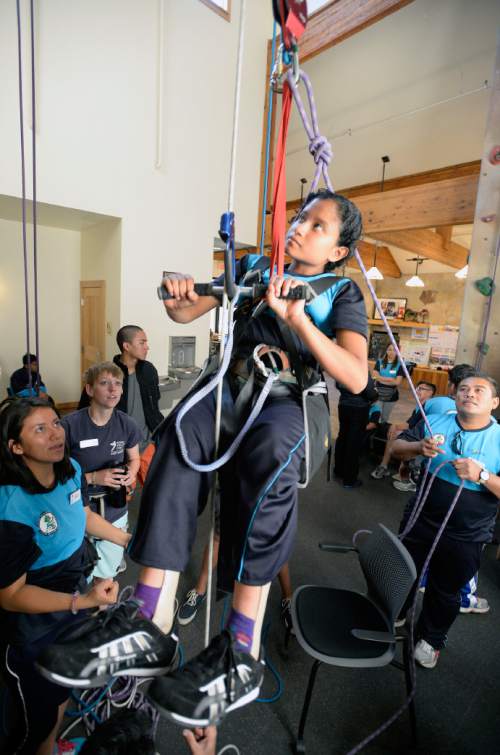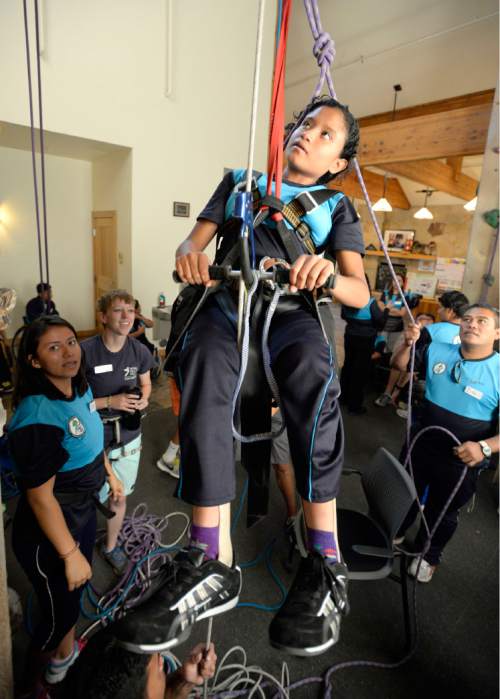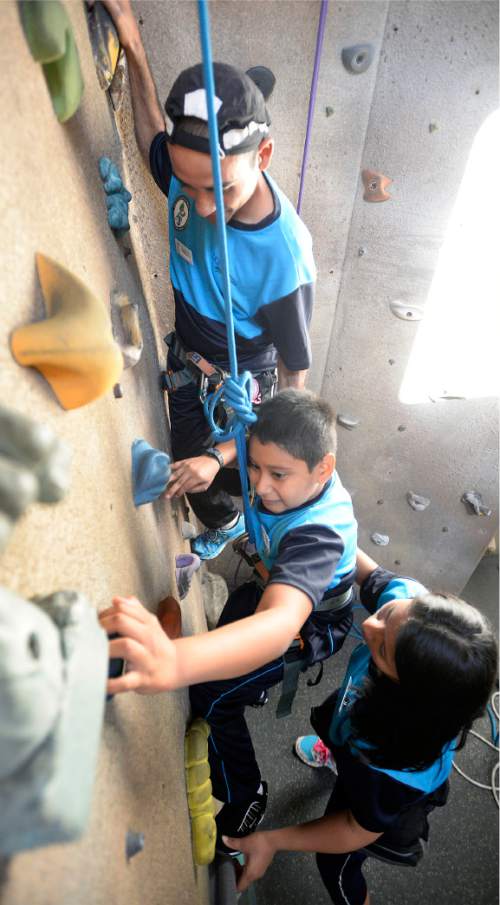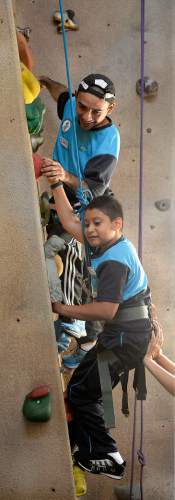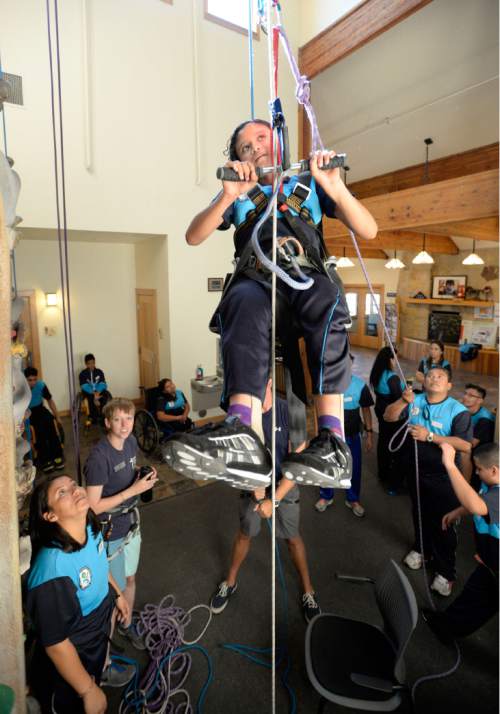This is an archived article that was published on sltrib.com in 2015, and information in the article may be outdated. It is provided only for personal research purposes and may not be reprinted.
Park City • Making his way up a 32-foot climbing wall at the National Ability Center, Obe Moran was anxious, but determined.
The 18-year-old from La Libertad, El Salvador, was attempting to rock climb for the first time and had watched several of his peers scale the wall and strike a small cowbell placed near the ceiling.
"I was nervous," he said, through a translator. "I really wanted to hit the bell."
But Moran had more working against him than gravity and vertigo Thursday.
He is part of a group of nine youth with disabilities from gang-ravaged El Salvador.
Along with eight coaches, they will spend the next week in Park City learning new skills through the U.S. State Department's Sports United program.
"I like to be positive and think that I can do anything," Moran said. "In El Salvador, I never thought I could have an opportunity like this."
This year's Sports United program coincides with the 25th anniversary of the Americans With Disabilities Act.
It is intended to encourage and empower international youth with disabilities, who often lack accessibility and accommodations in their home countries.
The group from El Salvador, most of whom have a form of spina bifida, will be in Summit County until Aug. 7, according to Meeche White, co-founder and international programs ambassador for the center.
Another group of youth from Thailand recently completed the program.
"Sports, music or art — those are the common denominators between societies," White said. "In this case, it's a sport project to bring us together."
In his first trip to the United States, Moran noted the beauty of Park City's scenery and the nice people. But he also said he was surprised by the entrance ramps, automatic doors and other accomodations for people with disabilities.
"In some [El Salvador] institutions, there are accessible buildings," he said. "In the rural areas, it's very difficult."
Monica Olivares, a program coordinator with the nonprofit group UCP Wheels For Humanity, said people with disabilities face significant challenges in El Salvador.
The developing Central American country is infamous for its gang warfare and high murder rate — in June, 677 were killed, the highest number since a civil war ended in 1992. And the State Department just boosted a travel warning for U.S. citizens.
At the same time, the country effectively has no public transit that is accessible to those with disabilities, Olivares said, making it difficult for many to venture outside their homes and immediate communities.
Wheelchair sporting programs like Sports United and monthly camps in El Salvador can be life-changing for youth with disabilities, she said, teaching them to be independent and helping to build confidence.
"It's going to open their mind to see that there are other activities besides the ones they already practice in El Salvador," she said. "They will feel encouraged to do more than they do."
Oscar Alfaro, an 11-year-old from Santa Ana, El Salvador, participates in sporting camps back home where he swims and plays wheelchair basketball.
Besides rock climbing, the group planned to ride horses during their stay in Park City. But Alfaro was most excited to try his hand at archery.
"I have seen it on television and I'd like to try it," he said.


